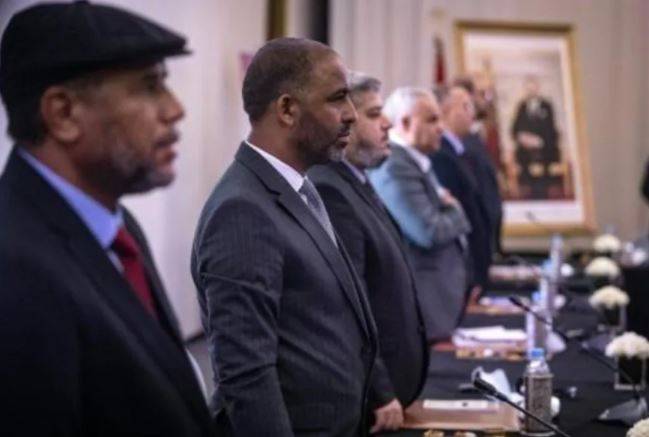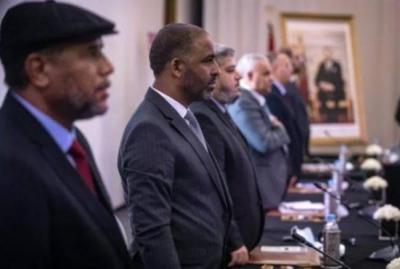Libyan parliamentarians concluded consultations between delegations from the House of Representatives and the High Council of State by calling on the international community to support the elections scheduled for the end of the year. However, there was no announcement of consensus on the election law, which is the main point of contention between the two institutions.
The final statement, read on Friday evening after two days of consultations in the Moroccan capital Rabat, stated, "We call on the international community to support the electoral process in Libya based on agreed-upon laws and the outcomes of the Libyan political dialogue forum (...) and to provide international observers to ensure the proper conduct of this important electoral milestone."
The statement, read by House of Representatives member El Hadi Ali Al-Saghir, did not clarify whether the consultations resulted in an agreement on the election law. It only noted that the discussions were held "in a friendly and brotherly atmosphere characterized by mutual understanding and consensus among partners of the same homeland."
The United Nations mission in Libya, which had representatives participating in the Rabat meetings, urged the negotiators on Thursday "to seize this opportunity and assume their historical responsibilities to complete the legislative framework for the elections."
The consultations, which were also attended by the U.S. envoy to Libya, Richard Norland, followed a dispute between the two sides after the Speaker of the House of Representatives, based in Tobruk (east), approved a law for presidential elections that observers said favors the strongman in eastern Libya, Khalifa Haftar. This law was opposed by the High Council of State, based in Tripoli.
There were hopes that the meeting of the two delegations in Morocco would resolve the disagreement. Since the fall of Muammar Gaddafi's regime and his death in 2011, Libya has been mired in civil war, security chaos, and political division, particularly between the east and west of the country, with local militias, foreign mercenaries, and jihadist groups participating in the conflict.
Under UN auspices, a temporary unity government was formed in March, led by businessman Abdul Hamid Dbeibah, to manage the transitional period leading to the presidential and legislative elections scheduled for December 24. However, the disagreement over the election law dealt a blow to UN-supported reconciliation efforts to resolve the crisis, worsened by the House of Representatives withdrawing confidence from the unity government last week, a decision also rejected by the High Council of State.




